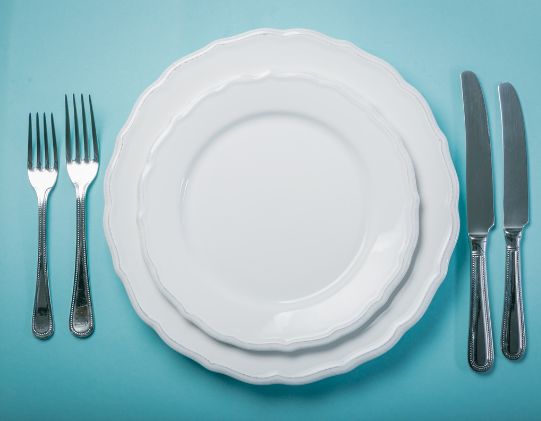Top 5 Questions on Fasting

Why is there so much confusion around fasting?
I think there are probably two main reasons for this. The first is that there are too many so-called “experts” who are spreading either false information or incomplete information about fasting. The second reason for the confusion is the same reason I find that causes issues in many of the different health topics I discuss and that is ignoring the importance of bioindividuality. No one person is the same so no one diet, exercise, journey, or “trend” will have the same effect on everyone. This of course leads to confusion.
This is why I thought it would be helpful to compile a few of the most common fasting questions I get, I hope it helps clear up some of the confusion.
Why do women need a separate fasting option?
First, let me say that not all women do. There are many women who will be fine with any of the fasting options out there BUT there are many others who’ve dabbled with intermittent fasting and suffered from an insatiable appetite, no weight loss (or even weight gain), poor blood glucose regulation, fatigue/energy drain, brain fog, disrupted menstrual cycles, low libido, and thyroid issues to name a few. I don’t say this to scare you off though!
If nothing else, these individuals provide evidence of what I’ve discussed previously––bioindividuality is important when it comes to your health journey. There are no one-size-fits-all diets. There is not one thing that works for everyone, and what’s more, what “works” for you now may not be the right fit for you at another point in your journey. Many women start fasting at 6 pm after dinner but some find they prefer to have a great breakfast and have no desire for a hearty dinner. You must decide what fits your preferences and go from there when deciding on the time to start your fast. Check out my other post on “Fasting: Is It Different For Women?”
Do supplements break a fast?
I support taking supplements if you want, but of course, they are not required to be successful with fasting.
Some popular supplements you could use during a fast are:
- C8 MCTs – this is great to add to your coffee. This increases exogenous ketone levels.
- BHB salts – some people say that this is a big part of their fast. These will give you more energy.
- Electrolytes – these are really important with your fast. I highly recommend taking it. Definitely look at sodium, which should be the highest of the electrolytes. Sodium is critical. During your fast, I’d suggest 5g a day.
- Apple cider vinegar – it’s a great emulsifier, it can flavor water, and helps with blood sugar.
Is there anyone who should not fast?
While fasting has many, many benefits and there are many different ways to fast, there are definitely some individuals who should not be fasting for certain reasons or who should absolutely be working with a physician if they do decide to give fasting a try. If you fall into any of the following categories, I would highly recommend you speak with your physician and come up with a detailed plan for how to incorporate fasting or work first on the best plan for your health with them.
- high-performing athletes
- young women/teenagers
- pregnant or lactating mothers t
- those with a history of disordered eating
- those with hypothyroidism
- those with amenorrhea or an irregular menstrual cycle
- lean 12-16% or underweight
What are the benefits of fasting?
Besides the mental benefits fasting can provide that I’ve spoken about before, fasting has extensive physical benefits. Some of these are:
- Promotes stress resistance
- Modifies the gut microbiome
- Promotes autophagy
- Improves cognitive health & function
- Triggers detoxification
- Supports weight loss
Is there a type of fasting that is best for me?
There are many ways to fast and as mentioned previously, there is no one way that is best. You must find out what works for not only your body but also your lifestyle. If you are someone whose schedule changes every few days, then keeping up with intermittent fasting may be difficult for you but incorporating periods of extended fasting may work better.
If you have further fasting questions, you are always welcome to join me in the ENERGY Formula Facebook Group and ask them there.
Share
Who is Shawn Wells?
Although I’ve suffered from countless issues, including chronic pain, auto-immunity, and depression, those are the very struggles that have led me to becoming a biochemist, formulation scientist, dietitian, and sports nutritionist who is now thriving. My personal experiences, experiments, and trials also have a much deeper purpose: To serve you, educate you, and ultimately help you optimize your health and longevity, reduce pain, and live your best life.
ORDER THE ENERGY FORMULA
Discover the 6 foundational pillars to cultivate a more caring, compassionate, connected, unified and purpose-filled life.


